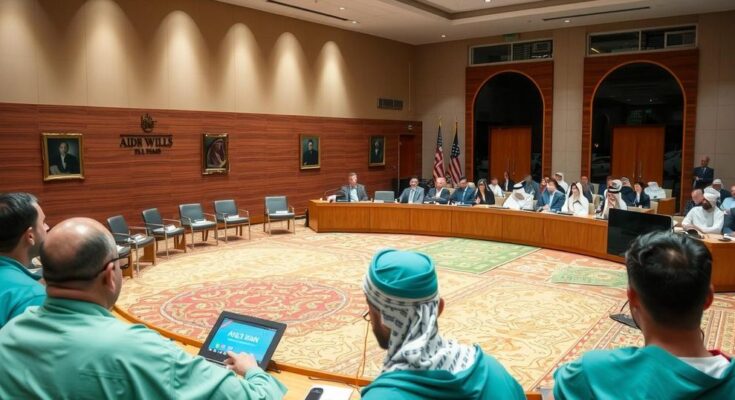The UN talks in Riyadh failed to establish a binding protocol to combat global drought, although groundwork was laid for future discussions. Developing countries emphasized the need for stronger commitments, contrasting with the preferences of developed nations for a less binding framework. The next COP17 is scheduled for 2026 in Mongolia to continue these efforts.
The recent UN talks held in Riyadh, Saudi Arabia, concluded without a consensus on a global response to drought issues, despite expectations for a binding protocol. During the 12-day Conference of the Parties (COP16) to the United Nations Convention to Combat Desertification (UNCCD), it became apparent that while groundwork was laid for future discussions, the divide between developed and developing nations hindered progress. Developing countries, particularly in Africa, sought a binding agreement that would compel nations to enhance their drought preparedness and response measures, but developed nations preferred a non-binding framework instead.
The need to address global droughts has pressing implications as these phenomena, exacerbated by climate change and human activity, impose severe economic burdens and threaten food security on a massive scale. The UN has indicated that droughts cost the global economy over $300 billion annually and are projected to impact 75% of the global population by 2050. This meeting has drawn attention to the need for international collaboration, particularly in vulnerable regions such as Africa where drought impacts are acutely felt.
In summary, the COP16 discussions highlighted a critical moment for international climate cooperation facing significant challenges due to the differing priorities of developed and developing nations. While progress was made in terms of dialogue and future planning, the lack of a binding agreement underscores ongoing tensions and the urgent need for a united global front to combat the rising threat of drought. The planned completion of a global drought regime at COP17 in Mongolia in 2026 offers a potential path forward, yet commitment from all parties remains essential.
Original Source: www.aljazeera.com




